-
Posts
2,482 -
Joined
-
Last visited
Content Type
Events
Forums
Downloads
Quizzes
Gallery
Blogs
Posts posted by Bandersnatch
-
-
- Popular Post
- Popular Post
7 hours ago, kwak250 said:Looking at the XL homepro package with a 10kw battery i am looking at around 800k?
Must be cheaper options
I would never consider a solar install quote that doesn't breakdown the costs per line. It's important to know the costs of the main components and then you can see the markup.
I put some prices in this discussion:
Supply and fit is always going to cost you more.
Maybe share where you are located and people can recommend a local installer. I can recommend my installer in Surin/Buriram although he is very busy these days - not helped by the fact that I keep recommending him.
-
 3
3
-
- Popular Post
- Popular Post
9 minutes ago, johng said:there is absolutely no reason to have over the air updates for vehicles..I want a vehicle that is free from tracking and tracing ,mandatory updates whether I want or need it...
if its "offline" there is no need for patching vulnerabilities is there ?
If you want a car without microchips you will be looking for a car from the '70s.
If you don't want to be tracked, then leave your phone at home.
There are advantages to all this conductivity. I can set the car's air-conditioning while I'm still in the restaurant. If my car was ever stolen I would be able to track it's location.
My BYD Seal has had multiple updates and each time they add some improvements.
But each to their own. Sounds like you're not into technology so probably an EV is not for you. In which case what are doing in this discussion?
-
 3
3
-
 5
5
-
- Popular Post
- Popular Post
1 hour ago, johng said:I will never knowingly buy any vehicle that has over the air updatedable software...not only is it vulnerable to hackers,
So you don't do OTA updates for your phone or computer because you think unpatched vulnerabilities make your devices safer?
-
 5
5
-
1 hour ago, kwak250 said:
Is it a good idea going through Homepro/Global?
Last time I checked they were still quoting about ฿10 per Watt and I have never seen them stock bigger panels. You will have to go online for more competitive prices.
I recently paid for Trina 705 Watt panels ฿2,780 each or ฿3.9 per watt
-
 1
1
-
 1
1
-
-
The title of the article is
"Clean energy, dirty secrets: Inside the corruption plaguing california’s solar market"
So nothing about Solar being a dirty form of energy.
I think you would be hard pressed to find any industry that doesn't have any "corruption or dirty secrets"
-
 1
1
-
-
1 hour ago, wensiensheng said:
I’m in the process of buying a BYD sealion 6, so a PHEV.
As part of the deal I am being given a free home charger and installation. BUT, the BYD guy says I need a special cable to run from my fuse box to my charger and for a special stand for the charger to fix to. The latter because it won’t be fixed to a wall.
So:
1. having googled, it seems that I DO need a special cable to handle the continuous power load. Fair enough. But does anyone know if the BYD people supply said cable at a significant mark up? Or is their pricing pretty competitive?
2. Does anyone know if their special stand is anything, well, special? I haven’t seen one in real life but from the picture it looks like plastic!
3. Just generally, do BYD use the charger installation exercise as a price gouging opportunity?
Grateful for any insights on the above
I got a free BYD Charger and installation when I purchased my Seal in 2023. BYD came and did a site survey and they provided a cable, from memory I think the first 10m was free. I did ask how much per m for longer and I remember thinking it sounded reasonable. As for what they quoted me, that I don't remember.
Question 3 "do BYD use the charger installation exercise as a price gouging opportunity?" - I don't think so, I think they are just covering their costs
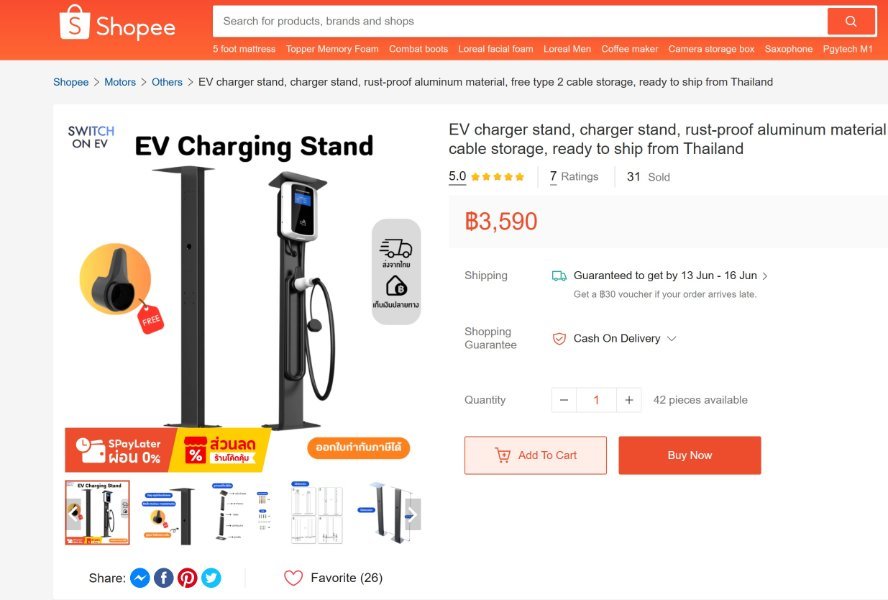
-
 2
2
-
-
I've just swapped out my 8 year old "Rosen Solar" 350 Watt panels for something a bit more well known.
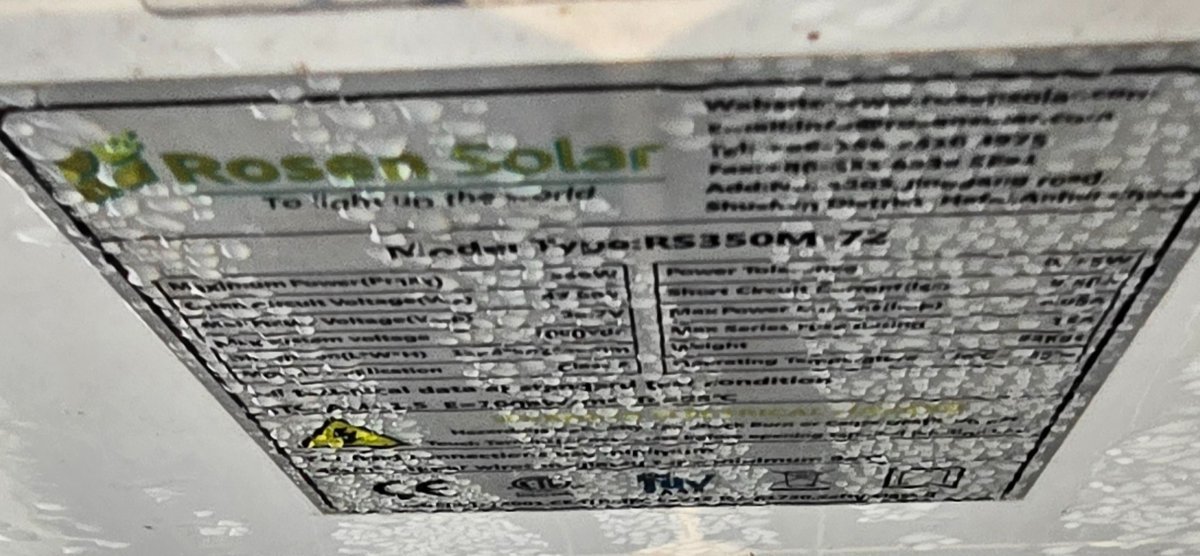
I have sold them all for ฿500 each
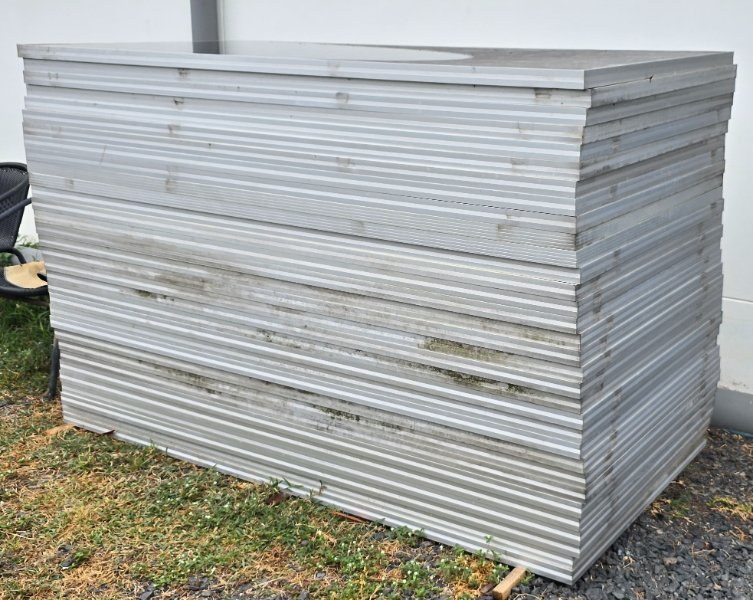
I replaced them with Trina 705 Watt panels for ฿2,780 each or ฿3.9 per watt. Not as cheap as @BritManToo got but I was paying a premium for higher Wattage panels.

I purchased the "Rosen" panels for ฿10 per Watt. At the time Global House was selling panels for ฿20 per Watt
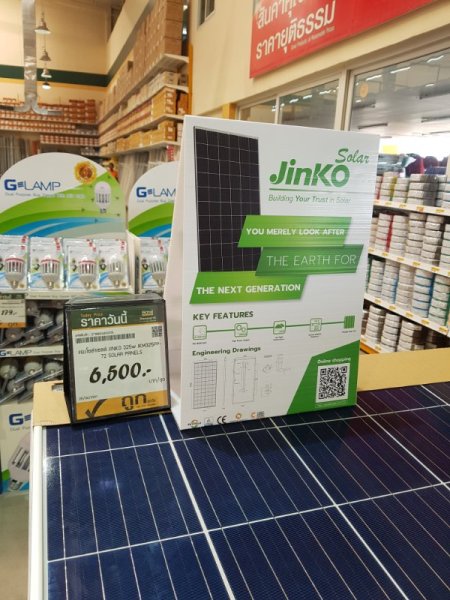
-
 1
1
-
-
33 minutes ago, wozzlegummich said:
Also known as Air Source Heat Pump Water Heater these are hot water heaters that use a reverse cycle air conditioner system to heat the water and are apparently very efficient to run.
I am currently planning the installation of a heat pump to provide hot water as well as hot water for the radiators for a house I own in the UK.
For my house in Thailand I installed a solar thermal system instead. I paid ฿30,000 for it 8 years ago and it's still going strong.
I have had comments on my YouTube channel from people in the UK saying that a heat pump would provide far more hot water, but we don't get the £7,500 boiler replacement grant here making it a very expensive proposition even if you could find one for sale and someone willing to install it.
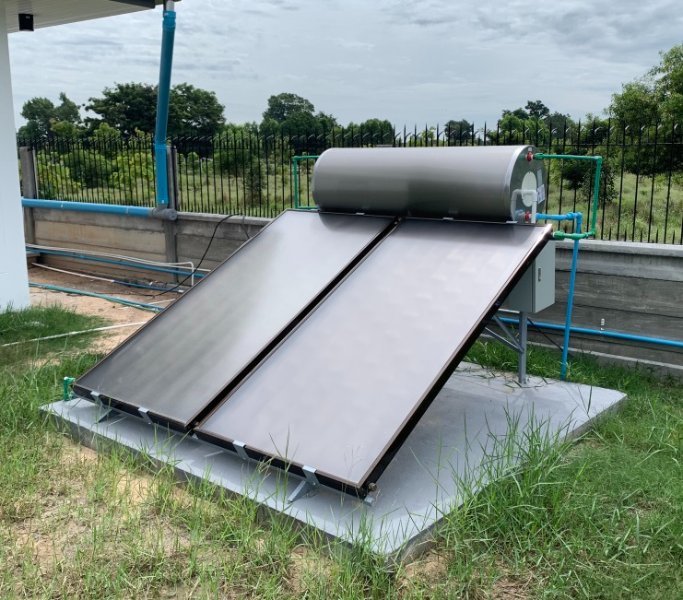
-
- Popular Post
- Popular Post
After some comments I had made on CleanTechnica, I was asked to write an article about my Eco Journey in Thailand.
Anyone willing to share their journey in the comments?
https://cleantechnica.com/2025/05/27/my-eco-journey-in-thailand/
-
 1
1
-
 1
1
-
 1
1
-
13 hours ago, UWEB said:
Sounds good but it isn't
The UK figures in the graph above were an anomaly due to a spike in all EV sales in March to beat incoming EV tax changes. Tesla's April car sales dropped 62% in Britain.
Here in Thailand, Tesla sales have always been poor due to inflated prices and poor investment in the Super Charger network.
You can buy a 13.5kWh Tesla PowerWall in Thailand for ฿699,000, no wonder nobody is buying them.
https://www.teslarati.com/tesla-powerwall-installation-thailand/
-
On 5/23/2025 at 7:49 PM, Pib said:
Total registrations of 100% electric vehicles in Thailand in April 2025
Tesla with 2 newly refreshed models for sale in the kingdom selling less than 100 cars must be disappointing
-
 2
2
-
-
27 minutes ago, brewsterbudgen said:
Thanks guys, this is helpful. I guess my final question is whether I should just buy a petrol vehicle after all? As I understand it, there is no likelihood of a ban on petrol vehicles in the future (even the UK seem to be backtracking on this), so other than being an environmentally-concerned person, I could save money (I'm a poor teacher!) and just buy a 'regular' car?
If you want cheap motoring would go for a low mileage used EV. Then you will have low service and repair costs and if you can charge at home about 7km per kWh (PEA/MEA unit)
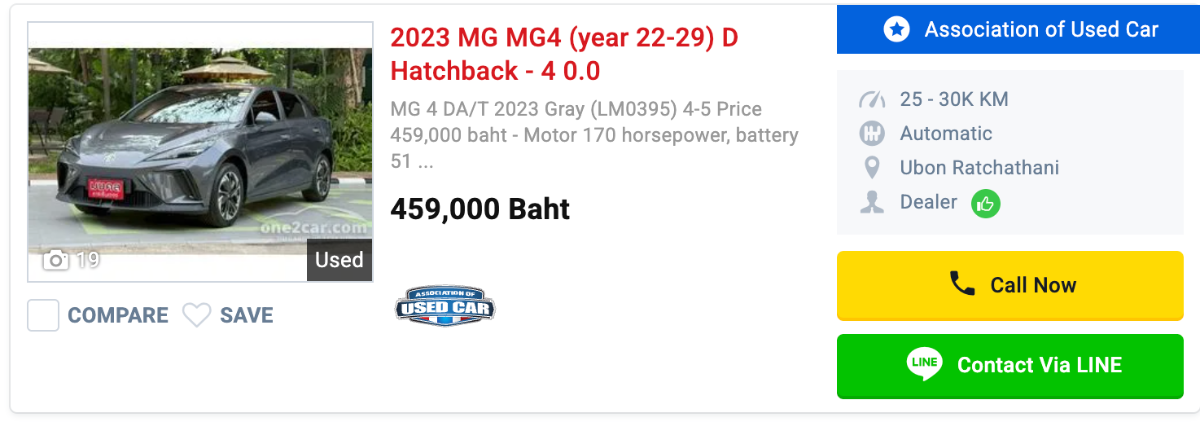
-
I have always said that Teslas are overpriced in Thailand.
In this example from the Tesla store, they have knocked half a million off the price of a prefacelift Model Y AWD Performance, but it’s still half a million more that the brand new BYD Sealion 7 AWD Performance.
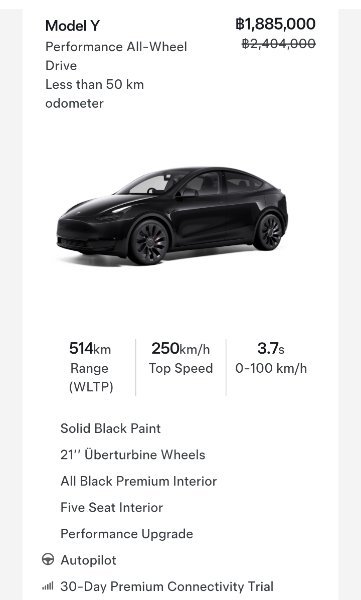
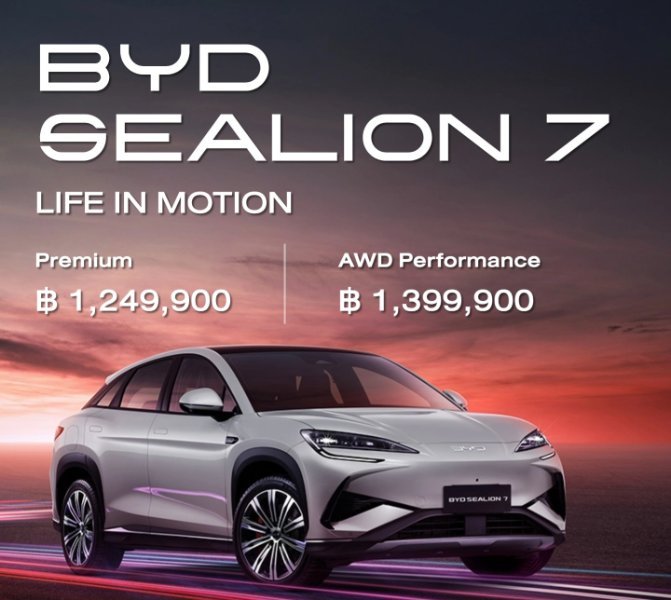
-
 1
1
-
 1
1
-
-
- Popular Post
- Popular Post
20 hours ago, Photoguy21 said:I will post as many times as I want. My choice not yours
You need to keep to the topic "EVs in Thailand" This is not a general discussion about EVs. @KhunLA has already posted about this directing you and @johng to his discussion
https://aseannow.com/topic/1246109-ice-vs-ev-the-debate-thread/
As OP I will report those who try to derail this discussion.
-
 2
2
-
 2
2
-
 1
1
-
 1
1
-
 1
1
-
- Popular Post
- Popular Post
1 hour ago, Photoguy21 said:You like them and that is great. It is your money to spend as you will. Just that they are not for me.
We get it. They are not for you. You don't need to keep posting the same thing again and again.
You don't see me on the "Attractive Lady Boys" discussion constantly posting:
"You like them and that is great. It is your money to spend as you will. Just that they are not for me"
People would probably start saying stuff like:
"Then why do you keep hanging out here then?"
"Sounds like maybe you're in denial mate"
-
 4
4
-
 1
1
-
 1
1
-
 1
1
-
1 hour ago, Photoguy21 said:
Currently driving a HONDA CRV. My decision is based very much on engineering, not quality but limitations
If you like big SUVs I would suggest test driving a BYD Sealion 7. It costs ฿1,249,900 for the Performance variant and can accelerate from 0 to 100 km/h in just 4.5 seconds. The entry-level Premium variant is priced at ฿1,149,900.
The CRV is priced from ฿1,419,000 to ฿1,729,000. The AWD models take 9.4 seconds 0-100. The 2025 CR-V Hybrid Sport Touring can achieve the same in approximately 7.9 seconds but it does have a battery and an electric motor.
-
 1
1
-
 1
1
-
-
- Popular Post
- Popular Post
14 minutes ago, Photoguy21 said:I definitely would not buy an EV.
You came to your carefully considered decision after driving which EVs?
What are you driving currently?
-
 1
1
-
 2
2
-
https://www.bbc.com/news/articles/cp8k8dnnp55o
"The sisters of a man who died of carbon monoxide poisoning in his car are campaigning for it to be a legal requirement for detectors to be fitted in UK vehicles.
Micheal Barnard 36, had been listening to music with the engine running.
CO is a silent killer because you can’t detect it. Less than two percent of CO in the air can kill you in under three minutes."
Sitting in cars and trucks with the engine running is very common in Thailand and it only takes a small hole in the exhaust and floor of the vehicle to kill you.
-
 1
1
-
 1
1
-
-
- Popular Post
- Popular Post
BYD dealer contacted me and asked me to bring both my cars in for an update.


Anyone hear about this?-
 3
3
-
Hilux, the stinky things parked at Big C with the engine running while the wife does the shopping?
Do I wish everyone drove one?
I can't hold my breath long enough for that.
-
 1
1
-
 1
1
-
-
On 3/23/2025 at 12:07 PM, radiochaser said:

https://www.snopes.com/fact-check/musk-kamala-harris-salute/

-
36 minutes ago, Mitker said:
The next step would be to deduct the loads at that moment to have an idea of what's left available
Couple more of my videos for you. I am now only buying devices that work with home assistant
-
 1
1
-
-
36 minutes ago, Mitker said:
My only uncertainty it that this value is very close (by a couple of %) to the sum of the loads and the battery charge.
Would this be due that by chance that day your use was that close from what the system was generating, or that what appears under 'solar PV' is just the sum of the uses plus some losses and roundings ? In the later case, it wouldn't inform about the 'untapped' portion of solar powerI agree with what @JBChiangRai posted above. Any unused solar production from my off-grid solar setup is curtailed.
The screen shots I posted were early this morning - a very dull day here in Surin.
Here are 2 more screen shots that I have just taken, one with one of my EVs charging the other without.
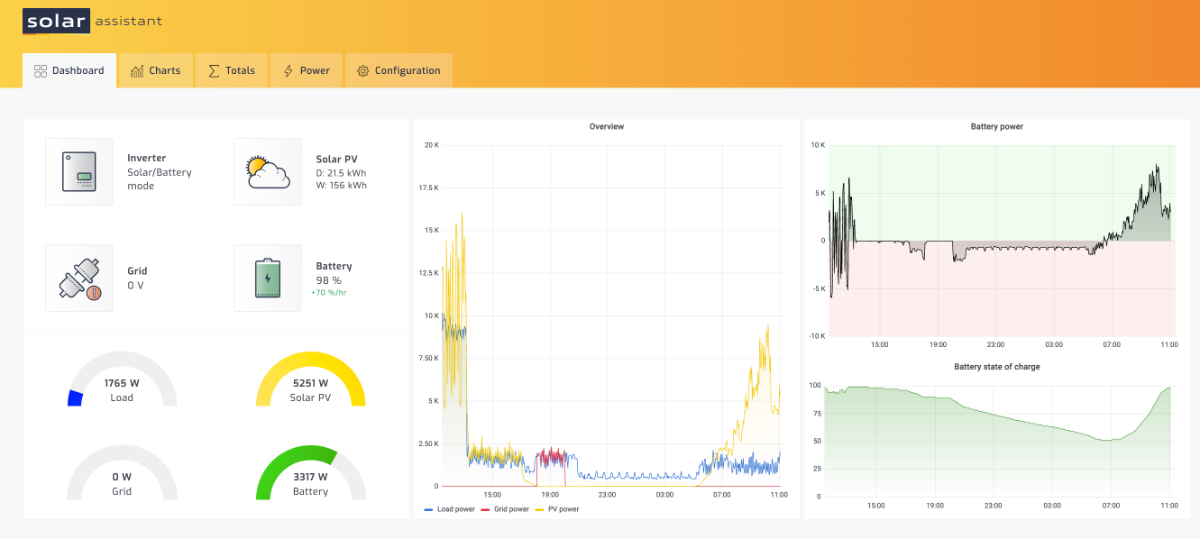
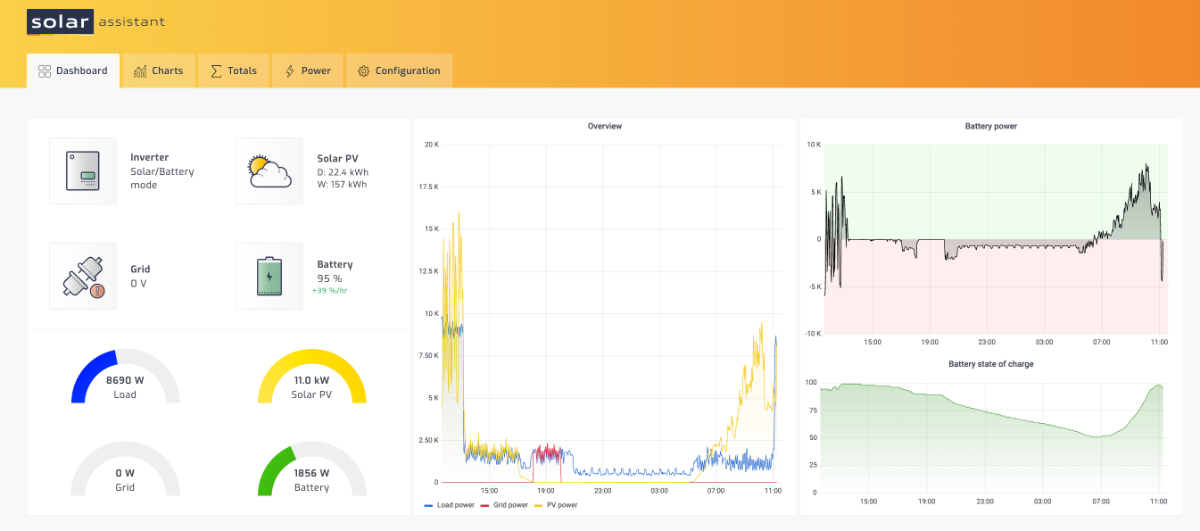
-
I have 4 Growatt SPF5000ES inverters. The ShinePhone app is pretty rubbish so I have have fitted a Raspberry Pi and using Solar Assistant software and a USB hub to link the 4 inverters together I am able to extract data from all the inverters
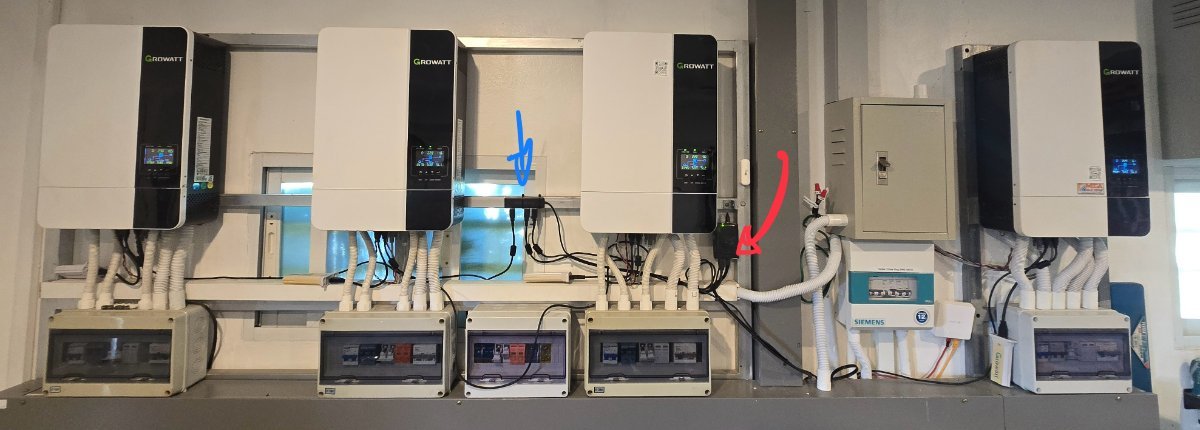
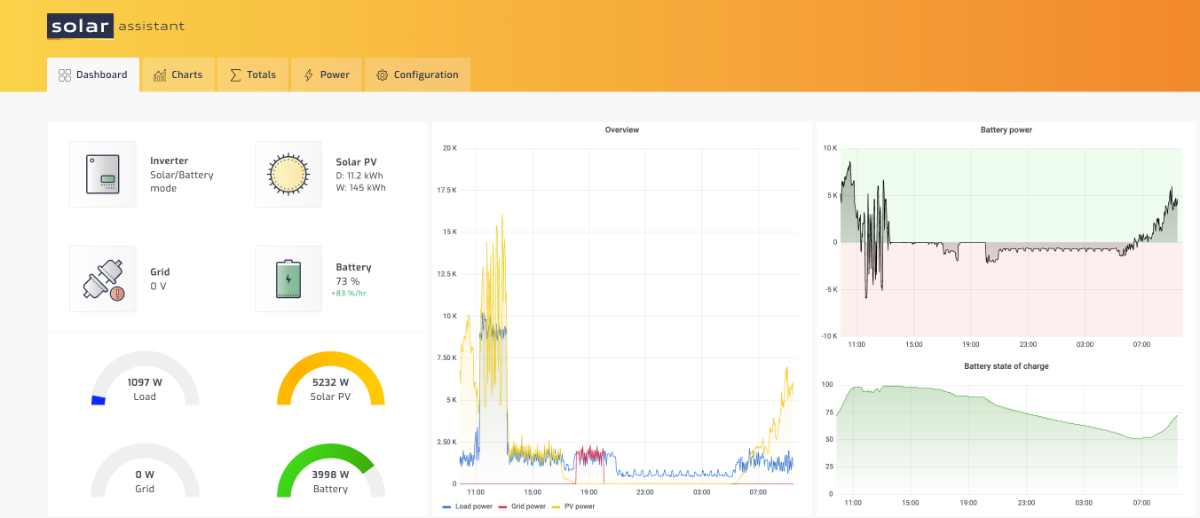
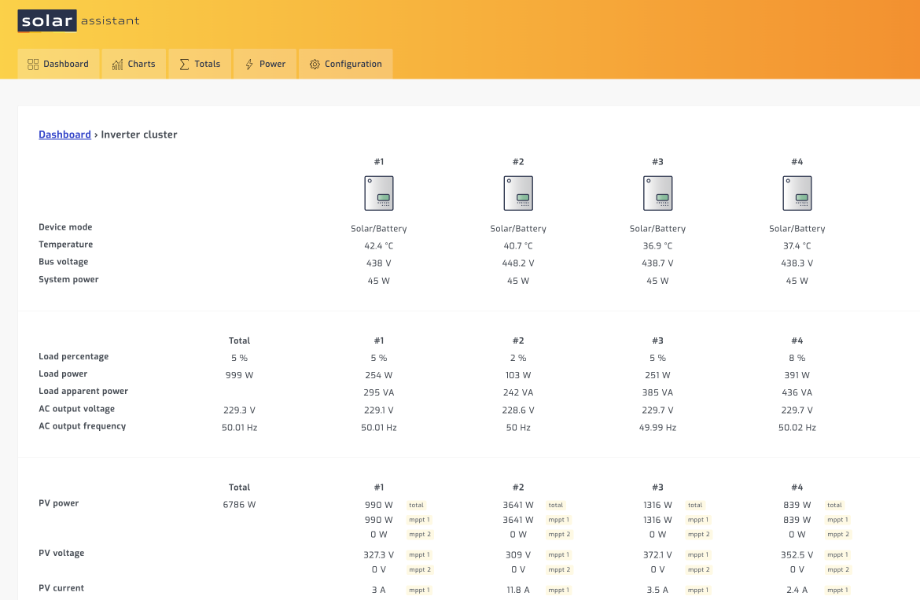
It is possible to push data from solar assistant into Home Assistant https://www.home-assistant.io/ then it is possible to manage smart devices like smart wifi breakers to switch on/off devices based on data from solar assistant.
I plan to manage my EV chargers to do that.
Here is a video I made a few years ago about smart wifi breakers
-
 1
1
-



Electric Vehicles in Thailand
in Thailand Motor Discussion
Posted
I own 2 BYDs a BYD Seal AWD and an M6. I have driven the BYD Sealion 7 AWD which is basically an SUV version of the Seal. When I drive to BKK which is a 900km round trip, the car is fully charged when I leave home and empty when I return as I charge from my my off-grid solar system for free.
I do 2 x 20ish minute charges, one on the way down and one on the way back. I always charge at BYD dealerships as they have fast 150kW chargers and plug and charge - you plug the car in and it starts charging. You have 24 hours to pay. The BYD app lets you see which chargers are free. Cost about ฿300 each time.
How far is the closest Deepal dealership from you?
Honda CRVs seem pretty expensive to me considering their lackluster performance 9.81 seconds 0-100 compared to 4.5 for the Sealion.